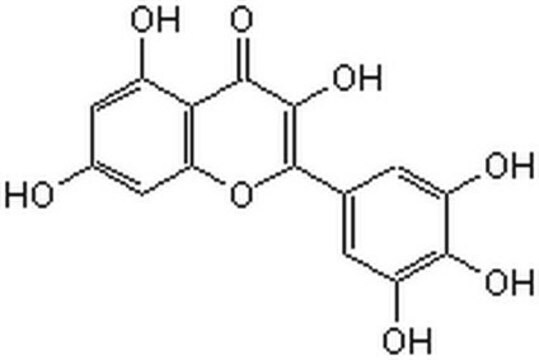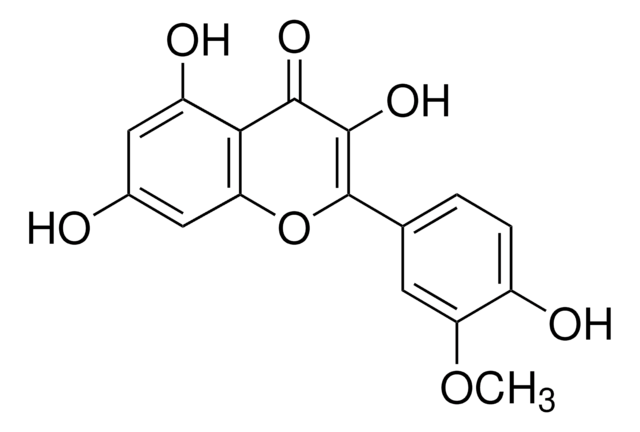91255
Myricitrin
≥99.0% (HPLC)
Synonym(s):
3,3′,4′,5,5′,7-Hexahydroxyflavone 3-O-rhamnoside, Myricetin 3-O-α-L-rhamnopyranoside, Myricetin 3-O-rhamnoside, Myricitroside
About This Item
Recommended Products
Quality Level
Assay
≥99.0% (HPLC)
form
powder
technique(s)
HPLC: suitable
color
light yellow
storage temp.
2-8°C
SMILES string
C[C@@H]1O[C@@H](OC2=C(Oc3cc(O)cc(O)c3C2=O)c4cc(O)c(O)c(O)c4)[C@H](O)[C@H](O)[C@H]1O
InChI
1S/C21H20O12/c1-6-14(26)17(29)18(30)21(31-6)33-20-16(28)13-9(23)4-8(22)5-12(13)32-19(20)7-2-10(24)15(27)11(25)3-7/h2-6,14,17-18,21-27,29-30H,1H3/t6-,14-,17+,18+,21-/m0/s1
InChI key
DCYOADKBABEMIQ-OWMUPTOHSA-N
Looking for similar products? Visit Product Comparison Guide
Biochem/physiol Actions
Packaging
Other Notes
Storage Class Code
11 - Combustible Solids
WGK
WGK 3
Flash Point(F)
Not applicable
Flash Point(C)
Not applicable
Choose from one of the most recent versions:
Already Own This Product?
Find documentation for the products that you have recently purchased in the Document Library.
Customers Also Viewed
Our team of scientists has experience in all areas of research including Life Science, Material Science, Chemical Synthesis, Chromatography, Analytical and many others.
Contact Technical Service










